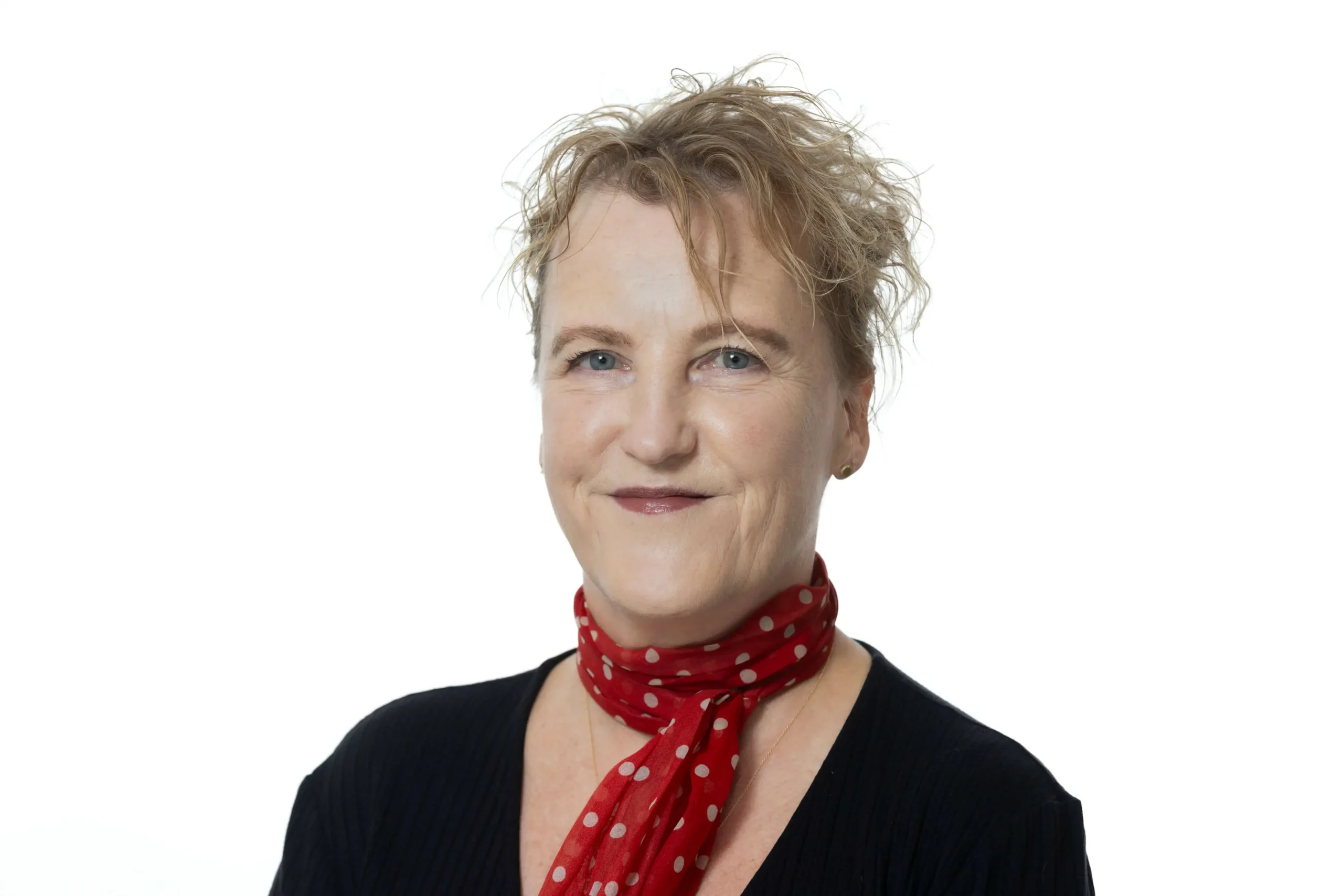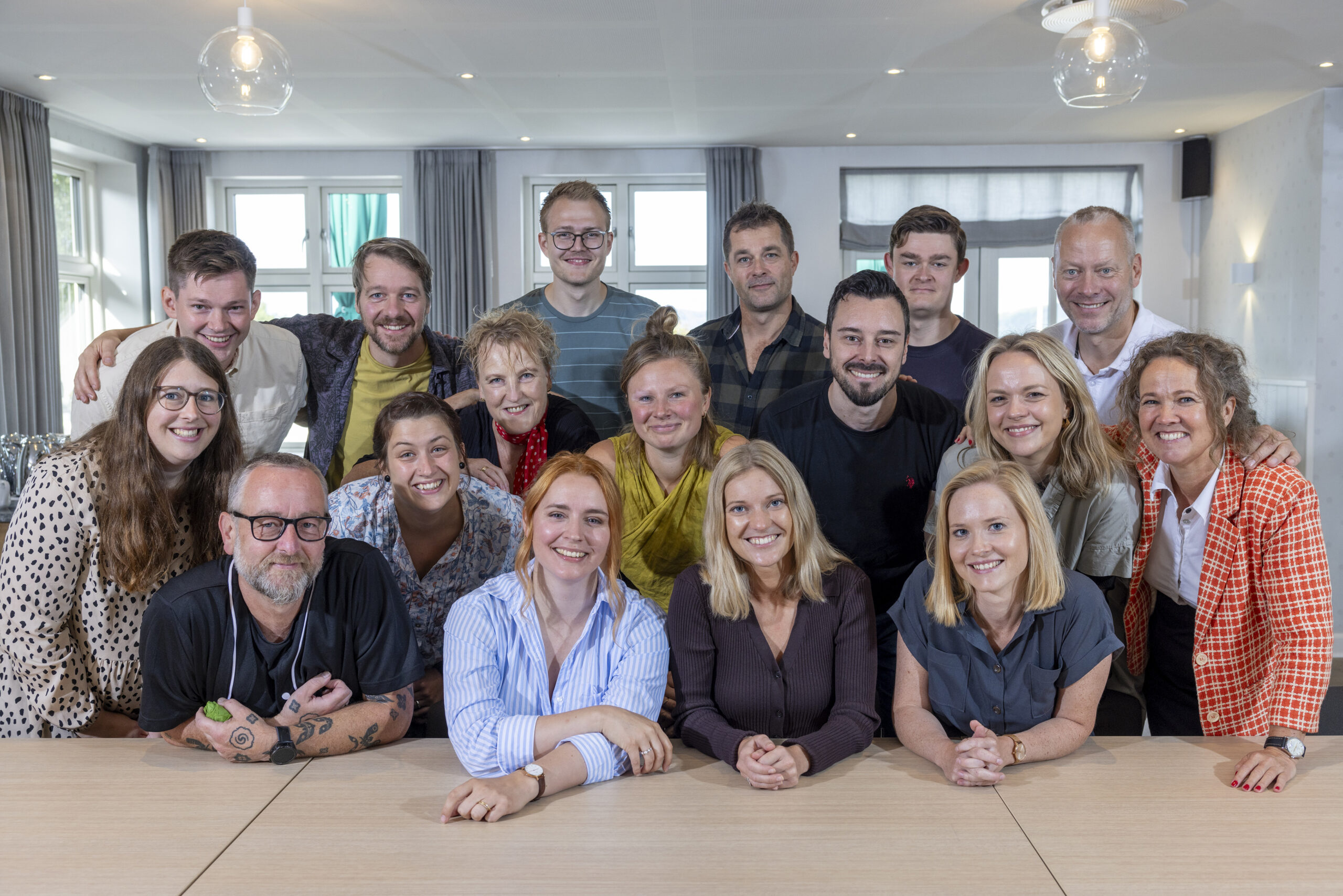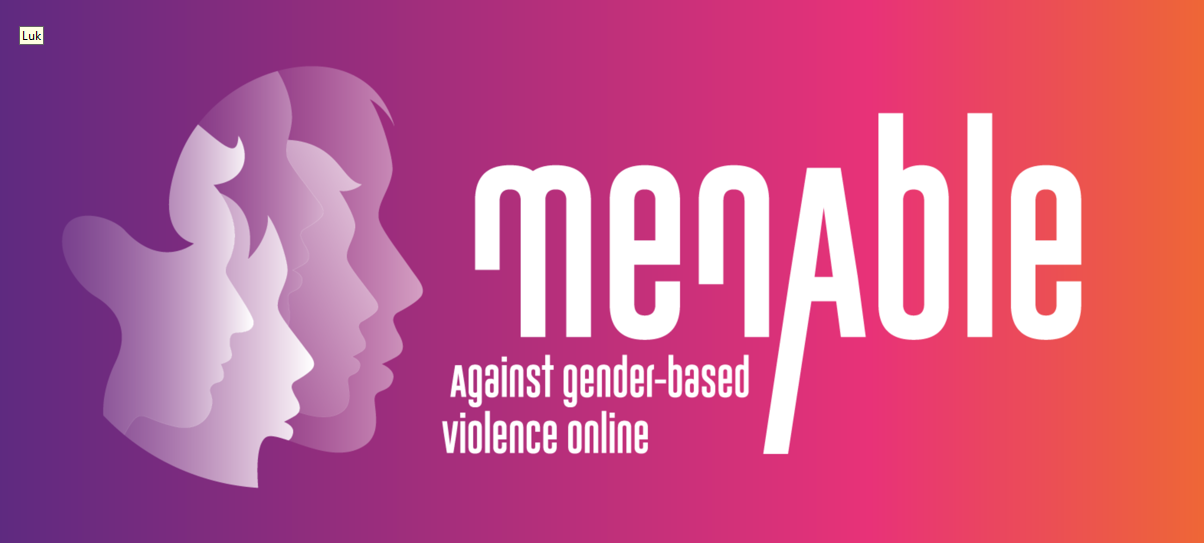
Operational guidelines for the Danish Helpline
Principles and objectives behind the operational guidelines
The organisation Centre for Digital Youthcare (CDYC) has been offering counselling since 2004.
In the counselling, children and young people can write anonymously with both professionals and each other. The counselling focuses in particular on children and young people in vulnerable and vulnerable positions, who take advantage of the anonymity and non-obligation in chats and online mailboxes to get help with things they would not otherwise dare to talk to their peers, parents, teachers / educators about.
The organisation works methodically and constantly with a focus on how methods can be refined and adapted to the counselling to the needs of the young people.
Operational Guidelines: Ethics and values in the work of counseling
The aim is to support and motivate the child or teenager to move on with his or her life by listening and offering personalised advice. The work is based on the following ethics and values:
- Volunteering is a key element of CfDP’s consultations. Volunteering in itself helps to underpin the equal and credible relationship between the individual counsellor and the young people.
- We believe that equal and trustworthy relationships are essential to creating change in one’s own life. That is why we work to give all children and young people the opportunity to express their own thoughts and feelings in a safe and trusting framework. A framework in which competent counsellors curiously reflect on issues, resources and opportunities for action in collaboration with the children and young people seeking advice.
- We believe that young people do the best they can, when they reach out to our counselling. We take responsibility for meeting the young people where they are and, as far as possible, to create a positive interaction.
- We want to provide young people with support to create changes in their lives in relation to the issues they address. In our counselling, the goal is to create a safe, present and open-minded framework in which the young person can express themselves, and to support the young person to potentially reach one step further in an already ongoing process.
- We motivate the child or teenager to take steps to make positive changes in regards to the issues or situation they seek help about. Either by solving the issues themselves, when given the correct tools, or by seeking further help, when needed.
Operational Guidelines: The counselling team
The organisation’s counselling is primarily staffed by volunteer counsellors with a professional background in the social, psychological or health professional field.
The volunteers’ efforts are supported by paid coordinators, who support and spar with the volunteers, to ensure the individual volunteer’s security and development. The coordinators ensure the quality of the work by ensuring that the counselling is based on the framework and method adopted in the organisation.
- All members of the counselling team must have signed the Declaration of Confidentiality and a Child Protection Certificate
- All counsellors are assured that they have the opportunity for professional sparring with an experienced advisor on all shifts.
- It is mandatory for volunteer counsellors to work eight hours monthly, or approx two hours weekly, to keep updated
- After each counselling session the counsellor has to fill out a registration form regarding the counselling session
- After each answer given in the mailbox counselling the counsellor will get feedback from a coordinator.
Operational Guidelines: Training
All counsellors must be trained in accordance with the training module.
It is primarily the responsibility of the Coordinating Team to ensure quality and development of the counselling services. However, it is also up to the entire team of counsellors to participate in the training by contributing with feedback, constructive discussion, coaching, and inputs.
All counsellors on the helpline receive a thorough introduction to and professional experience with digital counselling in writing, and working with children and young people in vulnerable positions. All counsellors are regularly offered training and the opportunity to participate in various presentations & courses so that they can develop their professionalism.
Professional counsellors and coordinators are subject to monthly group sparring, and can at all times get professional feedback if needed.
Training Module
The training module consists of:
1. Initial conversation: A coordinator will outlay the job and present the helpline:
- The function and virtual interior of the helpline
- The advisory functions
- Use of Registration Forms (registration of the type and length of interaction)
- Function of the intranet: where work schedules, tasks, meetings and events are posted
- The helpline’s values and focus points when meeting children and young people online
- Routines of the counselling team in relation to shifts, guidelines, sparring, team meetings, and general expectations
Handouts:
- Child Protection Certificate – a kind of equivalent to The Criminal Records Bureau (CRB) Enhanced Disclosure – listing convictions of assaults against children, sexual abuse of children, child porn and incest
- Declaration of Confidentiality, and contact information – all to be filled in and handed over to the coordinator before leaving the meeting. This is based on ethical considerations, and the counsellor cannot start working before the Child Protection Certificate is approved by the police.
2. Observation of counselling session
- Chat
The trainee observes experienced counsellors at work. They will observe the counsellor giving counselling, and thus, acquire knowledge of how to advise children and teens, and how to approach different subjects and problems. At the same time, the trainee gets an idea of the routines and what it means to be a counsellor at the helpline. On the first day of training, the trainee, if still interested in continuing, is registered and receives login to the chat and intranet. - Mailbox
The trainee receives a link to a document with selected responses that demonstrate how the counselling values, professional approach, and methods are manifested in practice. The examples are largely used as a foundation and inspiration for the development of each trainees professional skills in the subsequent training process.
3. Counselling under close supervision:
- Chat
The first 2 shifts are conducted with the support of a coordinator. Additionally, the two chats are subsequently reviewed by another coordinator, who provides written feedback. If deemed necessary, additional support shifts can be added. - Mailbox
The trainee starts out with a series of sample questions. The questions are old ones that have previously been asked in our service. There are nine questions that represent a broad cross-section of young people, across age, gender, and topics. Once the trainee has composed answers to all nine questions he/she will get personal in debt feedback from a coordinator. The sample answers will thus serve as a basis for a conversation about which focus areas are important for the counsellor to focus on, going forward.
4. Ready to counsel:
- Chat
When ready to counsel, the trainee will be integrated into the Counselling Team in line with the experienced counsellors. A coordinator is at hand at all times and ready to help if any special or difficult situations should occur, or if the counsellors have any questions or experience doubts.
Completed chat conversations are stored in the system’s log for six months days, after which they are deleted. Within 30 days of the conversation ending, a coordinator reviews the conversations held in order to ensure the quality of the service. - Mailbox
Each week, the coordinator sends 1-2 questions to each counsellor, who then has one week to respond.
The coordinator will review and publish the answer. If the coordinator assesses that corrections need to be made to the response, this will be communicated in writing, after which the coordinator and advisor will engage in a dialogue on how the final response should be.
The coordinator will also provide some general feedback upon publication. The amount of feedback will vary depending on the complexity of the question/answer.
Maintaining high-quality professionalism
All volunteers receive continuous coaching, evaluation and education. Also, volunteers who have long since completed their training receive continuous support and guidance in regards to the specific session in which they have engaged during their shift. So, they may always seek information on a certain subject with the coordinator responsible, and receive help to find the best options possible or referrals, regarding the person they are offering counselling.
Finally, the Coordinating Team meets monthly in order to evaluate the status of each volunteer counsellor, and plan joint information meetings. At the same time, the Coordinating Team uses these meetings to keep each other updated on current themes prevalent in the chatroom, along with any knowledge and information which is important to pass on to the volunteer counsellors.
Operational Guidelines: Method
Counsellors are to reach the objectives of the helpline by, at all times, focusing on being motivating, supportive, empathic, listening to the child and being present, explorative and disseminating.
The use of method
The organisation’s methodological choices go across counselling activities and ensure uniformity and quality of the advice the young person encounters. The method consists of five concrete basic principles, which create coherence between the organisation’s values, goals and practice, in the meeting between the young person and the counsellor.
1. Present opportunities, rather than telling the young person what is the right thing to do. It is important that we leave it up to the young person to make the decisions about what they want to do, because the young people are the experts in their own lives.
2. Be a reflective witness rather than putting your own interpretations into the young person’s words. In this way, we do not dictate what the young person says, does or thinks, but instead express how you experience it.
3. Externalise the problems so that the young person can understand their situation as something they can change. We often meet young people who almost completely identify with the problem they experience. We need to help them see that they consist of a lot of other things.
4.Normalize when possible so that it becomes clear to the young people that what they are experiencing may not be as abnormal or strange as they think.
5. Explain your considerations so that it’s easy for the young person to understand, how and why you give the advice you do
Special actions towards young people who are exposed to abusive and criminal acts
The organisation’s counselling is subject to notification and deterrence of children and young people under 18 who are exposed to abusive acts, criminal acts or neglect in the family. The counselling’s legal foundation in relation to notification:
SERVICE ACT § 153
Persons performing public service or public office shall notify the municipal council if, during the performance of the service or office, they become aware of or have reason to believe that
1. that a child or young person under the age of 18 may need special support
2. that a child may need special support immediately after birth due to the circumstances of the expectant parents
3. that a child or young person under the age of 18 may need special support due to the child’s or young person’s illegal absence from school or failure to fulfil their compulsory education, or
4. that a child or young person under the age of 18 has been abused.
In special cases where it is assessed that the young person or others around the young person are in acute danger of death, OR if a criminal act is imminent, employees in the organisation’s counselling must avert by reporting to the police. It is subsequently up to the police to decide whether they will try to track down the young person and thus start an investigation.
It is always an employed coordinator from the counselling service who handles the urgent inquiries in the counselling service and contacts the police if necessary.
Operational Guidelines: Peer Forum Content Moderation
All content are manually approved before it becomes visible to users on the site.
Moderation Workflow
- Continuous monitoring of all content created in the forum.
- Every time a new post or comment is submitted, the responsible moderator will receive a notification via email. The email will include the title of the post/comment, its content, the user’s age, gender, and name.
- On weekdays, emails are checked regularly for new notifications, typically every 2-3 hours between 08:00-22:00.
- On weekends and holidays, emails are checked at slightly longer intervals.
- If a user posts something that could provoke strong reactions from others, we monitor the site more closely in the following hours or days.
Publish, Moderate, or Delete
Generally we allow a broad range of discussions, BUT…
- Surnames, postal and email addresses, usernames, and similar personal details will be removed.
- Direct Advertisements Are Deleted. Occasionally, businesses come across the forum and leave comments that may seem “genuine” but are clearly intended to promote a product or service. These should be deleted.
- Posts or comments asking for user to participate in surveys or interviews are deleted, as it is important to maintain the Peer Forum as a free space for users.
- Direct Links to Pornographic sites or other sites that we assess to be potentially harmful are deleted.
Setting the tone
Debate is welcome, and discussions can be intense, BUT;
- direct insults or comments that contribute nothing should be deleted
- posts and comments that directly encourage others to harm themselves or engage in illegal activities must be deleted.
When We Intervene Beyond Moderation
In some cases, a young person may describe a very difficult situation that we assess needs more that help from peers. In these cases we:
- provide a referral, to our own or external counseling service.
- report to authorities (either social authorities or police if we assess that this is required.
Operational Guidelines: technical and safety points
All helpline data is transferred via encrypted channels, and access to data is restricted to helpline staff members by password. It is key for any given counselling session, that as little data as possible is stored on the end users in order to ensure their anonymity.
Approved by the Danish Data Protection Agency
The helpline is approved by the Danish Data Protection Agency that oversees the Personal Data Protection Act. The registration of any personal information follows the legal framework regarding data protection. The helpline has implemented all necessary procedures to comply with data and privacy security according to the EU General Data Protection
Accreditation of consulting services
The helplines counselling service is accredited by the national accreditation unit ‘’Rådgivnings Danmark’’ which ensures that the advice complies with legal, professional and ethical requirements in its counselling. Re-accreditation takes place every 3 years.
Humans access to functions and data
Coordinators of the system will have access to the functions and data which are cited in the user management. Employees who need to access data in a computer system in connection with development, maintenance, and operations, may only be authorised to do so with a unique identification. The helpline uses volunteers in its counselling. All volunteers are at least 21 years old and are professionals or students in the social and educational field, or other relevant experience. All volunteers are approved through a certificate from the police. All counsellors sign a confidentiality commitment as part of the work.
Filing sensitive data in connection to reports to authorities
In connection to reporting, all sensitive data are directly handed over to the appropriate authority, and since deleted from our system in order to maintain anonymity for the parties involved. No prints are made. The only registration that takes place locally at the helpline in connection with a report to the authorities is a local registration that a report has been sent, which authority the report has been sent to and what the subject of the report has been.
Artificial intelligence
The helpline only uses artificial intelligence in its online services along with human moderation, when appropriate. The AI is used for example, by scrambling personal sensitive data on inquiries in the counselling, to protect the anonymity of users. The activity raises no concerns relating to human rights and values. On the contrary, it has a protective effect in terms of protecting the users of the helpline.
Processing and registration of personal information
The processing and registration of any personal information follow the legal framework regarding data-protection. All counsellors sign confidentiality commitments as part of the counselling in relation to confidential or sensitive personal information, including information on ethnicity, religion, social and health information.
This obligation follows The Criminal Code § 152. Processing of personal data is done in accordance with applicable law, including the Act on Processing of Personal Data (Act No. 429 of 31 May 2000). CDYC has implemented all necessary procedures in relation to compliance with data and privacy security according to the EU General Data Protection Regulation.
CDYCs chat- and SMS applications are done through encrypted connections ensuring that conversations cannot be intercepted and read by third parties. The underlying software is kept constantly updated with security updates. The chat is designed to scale to large numbers of simultaneous users.
To ensure possible police investigation content of counselling sessions are stored within the system for 30 days, and are since completely deleted. No personal data is saved, as these are removed by a digital scrambler.

The contents of this publication are the sole responsibility of Centre for Digital Youthcare and do not necessarily reflect the opinion of the European Union.




Hvis du vil sætte et par ord på din feedback, vil det hjælpe os rigtig meget til at forbedre vores indhold.